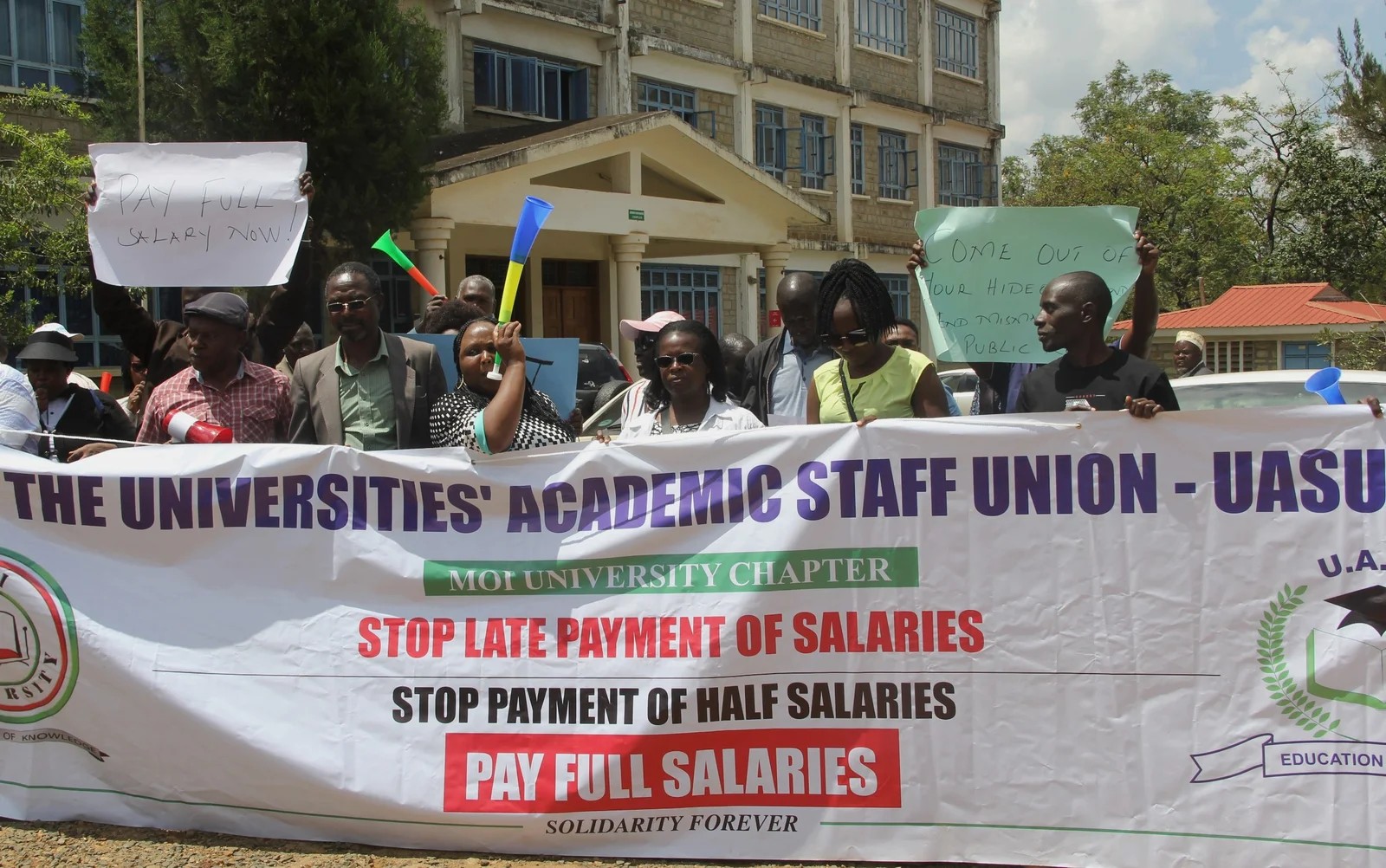- Lecturers, through UASU, have vowed to continue their strike until the government pays the full KSh 7.9 billion arrears, citing years of unfulfilled promises.
- Students across major universities, including UoN and KU, are growing frustrated and threatening protests as learning remains paralysed nationwide.
Kenya’s public universities are once again quiet. Lecture halls are empty, students are stuck at home, and there seems to be no end in sight. The continuing lecturers’ strike has pushed frustrations to a boiling point on all sides.
In a video aired on national television, The Universities Academic Staff Union (UASU) dismissed government claims and vowed to continue the strike until the full KSh 7.9 billion in arrears is paid.
UASU Secretary General, Constantine Wasonga, made it clear: the lecturers are not backing down. “We are not going back to class until the full KSh 7.9 billion is paid. Lecturers have waited for too long,” he said. His statement reflects just how tired and angry the lecturers are after years of unfulfilled promises.
But as the standoff drags on, it’s the students who are paying the highest price. On October 30, 2025, students from various universities in Nairobi including the University of Nairobi staged demonstrations to protest the prolonged strike, which they say has disrupted learning activities across the country.
The crisis has even drawn reactions from political leaders. Machakos Deputy Governor Francis Mwangangi has hit out at President William Ruto, criticising the government’s slow response and insisting that education must be treated as a national priority—not an afterthought.
Kiharu Member of Parliament (MP) Ndindi Nyoro also slammed the government, urging the education ministry to take responsibility. He stressed that agreements must be honoured and warned that the government cannot keep turning its back on the people who keep the universities running.
The truth is, everyone has a point. Lecturers deserve to be paid what they are owed. Students deserve to learn without interruptions. And the government, which promised to value education, needs to show that through action not speeches.
Right now, it feels like the education system is being held together by patience and hope. And both are running out. The government should stop shifting blame and pay what was agreed.
Once lecturers see genuine effort, they should return to class and help rebuild the trust that’s slowly disappearing. This strike is not just about money it’s about fairness and respect. And until both are restored, the silence in universities across the country will keep reminding us that something is deeply broken in Kenya’s education system.


-1770306232-md.jpg)



-1770306232-sm.jpg)

